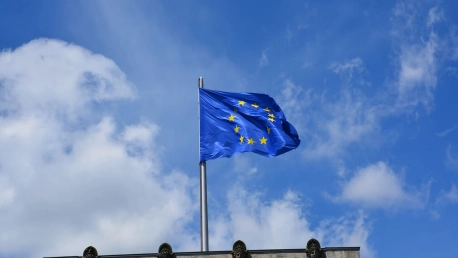The European Union has taken a significant leap toward its climate goals with a 15% reduction in emissions from the power and industry sectors in 2023. The remarkable progress aligns with the EU’s targets, aiming for a 62% cut by 2030. Renewable energy adoption has soared, with wind and solar energy significantly contributing to this decline. Moreover, the year benefited from advantageous weather conditions, which boosted hydroelectric power generation and sustained nuclear energy outputs.The declining output in the industrial sector has coincided with a widespread energy crisis, prompting a 7% emissions reduction. Efficiency improvements across different industries have also played a crucial role. Nevertheless, the industrial progress has been overshadowed by the power sector’s achievement, which boasts a 24% emission cut—far exceeding the industry’s advancement.
The Power Sector’s Success Story
The power sector’s substantial 24% decline in emissions underscores an indisputable shift toward cleaner energy sources, setting a positive example for other sectors. This achievement is largely due to the decommissioning of coal power plants and the increased reliance on renewable energy. Governments and the industry injected substantial investments into wind and solar energy infrastructure, leading to this groundbreaking success.While the progress is laudable, experts warn that relying on certain temporary conditions, such as the coal use reduction, may not promise lasting impact. Moreover, the power sector’s success overshadows the insufficient progress in other sectors, notably aviation, which reportedly saw a 10% increase in emissions. Such disparity suggests that more efforts are essential to ensure comprehensive and uniform progress across all fronts.
Challenges Ahead for Sustainable Progress
Despite the commendable strides in emission reductions, there remain concerns about the sustainability of these advancements. Institutions such as Germany’s Agora Energiewende caution that without structural changes, some of the emission cuts may not be sustained. They argue that a cyclical downturn in production rather than permanent innovation may drive some of the current reductions.The EU’s ‘effort sharing’ sectors, which include agriculture, transport, and heating, are on track to underachieve the 2030 targets with an estimated 34% reduction, falling short of the aimed 40%. While the power and industry sectors sail toward their goals, the lag in the ‘effort sharing’ sectors could pose a significant challenge to the EU’s overall climate objectives. It underscores the need for a holistic approach to emission reductions, with tailored strategies addressing the unique challenges of each sector.









